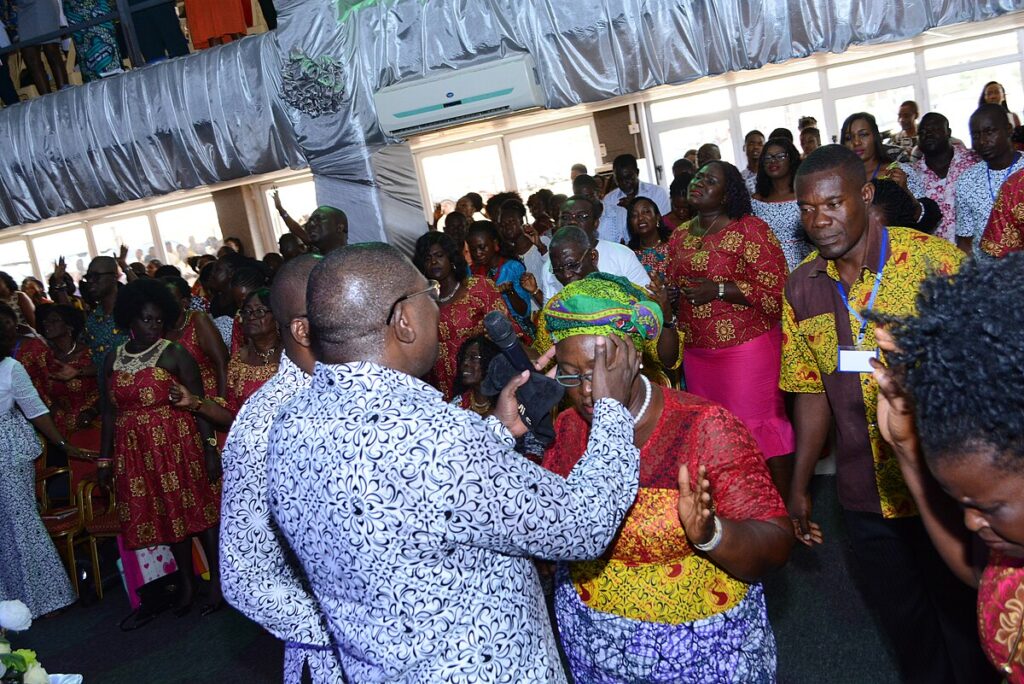This article aims to reveal the increasingly blurred line between religion and cultism, and the shocking, inhumane and deadly activities of modern churches/cultic groups in Africa.
The focus will be primarily on New Religious Movements (NRM) – cults, religious communities and spiritual groups of modern origin which have a peripheral place within the dominant religious culture of contemporary society.
Religion is defined as belief in a god or gods together with activities connected with this belief, for example, praying or worshipping in a building such as a church or temple.
A cult is a group which requires the total devotion of its members to a set of religious or philosophical beliefs and practices which are generally considered to be deviant and incompatible with the usual norms of society.
The major characteristic of a cult is that it is led by a charismatic and self-appointed leader who tightly controls its members. Howard P. Becker’s ‘church-sect typology’ puts churches and sects at the far ends of a spectrum with denominations in the middle together with the cults/NRM arising from them.
This typology reveals that Christian denominations such as Pentecostalism are nothing but cults or pseudo cults.
Gruesome reminders of this phenomenon are the tragedy of the Jonestown People’s Temple led by Rev. Jim Jones – in which nearly a thousand people lost their lives – and the Branch Davidians led by David Koresh whose face-off with federal agents also cost many lives, mostly women and children.
The article is necessitated and informed by recent events in Africa where NRMs have turned many people into zombies and slaves doing the bidding of evil Svengalis. As a result, many people have lost their minds, their property, and even their lives in the name of religion.
I will venture to mention some examples.T. B. Joshua was a world-famous Nigerian televangelist, faith healer and Pentecostalist who established the Synagogue, Church of All Nations.
Three years after his death a BBC investigation found that Joshua had raped, tortured, and abused many of his followers over 20 years. There were allegations of child abuse at his Lagos compound and faked miracles.
Pastor Shepherd Bushiri runs a non-denominational charismatic evangelical church in South Africa, known as the Enlightened Christian Gathering, which has branches around the world. He gained popularity after releasing a video showing him allegedly walking on air. Bushiri has been accused of financial crimes both in South Africa and in the United States.
A video went viral showing Bishop Johana, a Kenyan, touching a woman on her private parts under the guise of exorcising demons.
Pastor Christ Penelope of the Seven-Fold Holy Spirit Ministries in Giyani, South Africa became notorious after a video of him went viral. It showed him sitting on, and farting on, the faces of church members, supposedly to heal them.
Kenyan evangelical pastor Paul Mackenzie convinced members of his Good News International Church to starve themselves to death in hopes of meeting Jesus. The bodies of more than 400 victims have been recovered from shallow graves. Mackenzie has been charged with murder.
This is a clarion call to African governments to hold religious leaders legally accountable. Allegations of abuse must be swiftly and properly investigated. Laws to regulate religious organizations should be upheld.
Moreover, there should be a true separation of state and religion – most African states are secular. Most importantly, governments should provide their citizens with a better life so they don’t fall prey to these charlatans who promise them easy solutions to their many problems.


